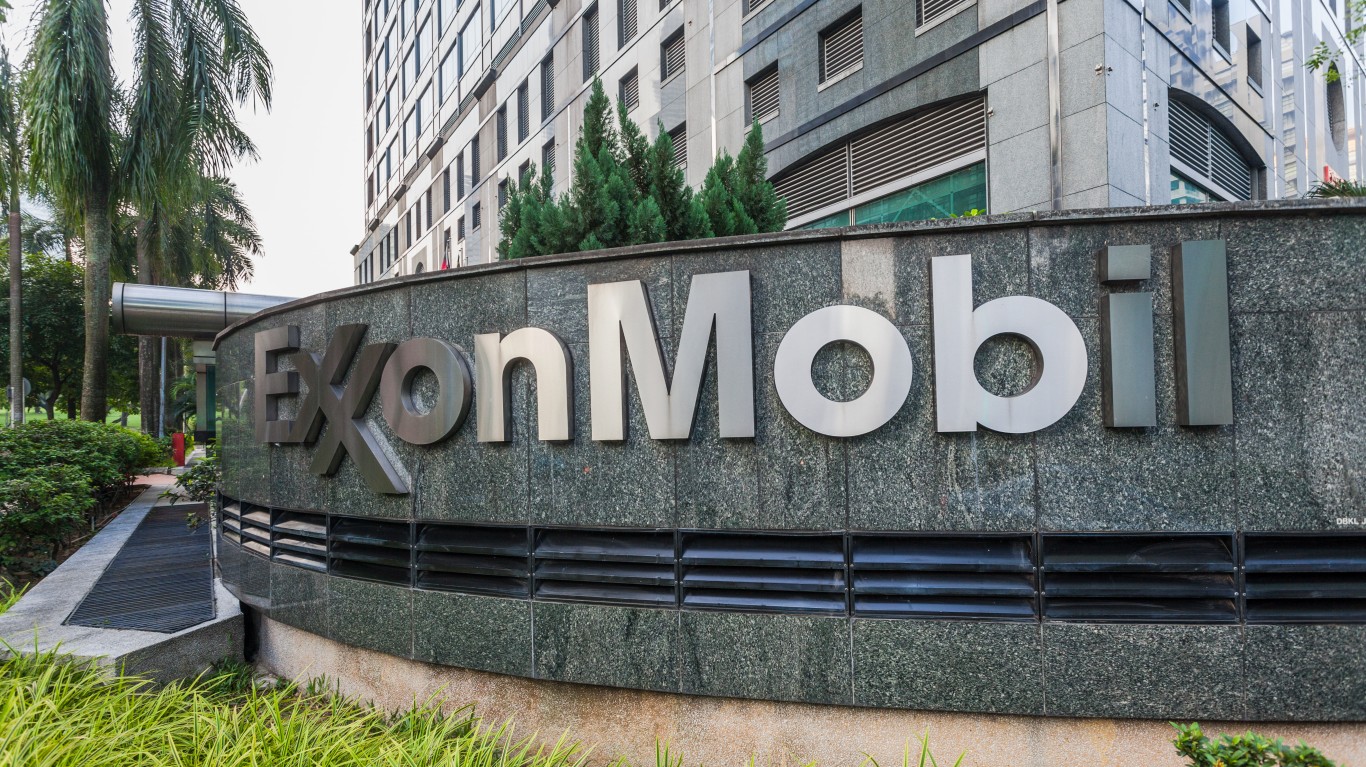Energy
Exxon Mobil Annual Meeting Shoots Down 7 Shareholder Proposals

Published:
Last Updated:

This is pretty much how all companies would like shareholder votes to turn out. At the annual general meeting Wednesday, Exxon Mobil Corp. (NYSE: XOM) approved two of nine shareholder proposals, both presented by and supported by the company’s board of directors. Seven other proposals were rejected, although a couple of those came close.
The proposal to have the board chair be an independent lost by a vote of 40.8% in favor versus 59.2% against. A proposal that would have allowed shareholders representing 10% of outstanding shares to call a special shareholder meeting also went down to a rather close defeat, 42.4% in favor versus 57.6% against.
The big loser was a proposal to create a board committee tasked with “assessing the public health risks of expanding petrochemical operations and investments in areas increasingly prone to climate change-induced storms, flooding, and sea level rise.” A resounding 92.6% of shareholders voted against that one.
In the company’s proxy statement, Exxon argued against the climate change disclosures: “ExxonMobil invests only in petrochemical plants or other operations where the potential public health risk can be managed to safe and acceptable levels. Therefore, the report requested by the proponent is not necessary.”
One might ask, “Safe and acceptable to whom?” Chair and CEO Darren Woods has the answer:
We are committed to sharing the company’s success with our shareholders. Higher earnings and increased cash flow from our investments are a good means to accomplish this. We are equally committed to helping society reduce global emissions while supporting growth and prosperity for communities around the world – effectively addressing the dual challenge.
How then does Exxon propose to address the emissions reduction portion of that dual challenge? In its press release following the meeting the company pointed, among other things, to its participation in a conference sponsored by the Vatican and its advocacy “for policies such as a carbon tax and strong methane regulations.”
We’ve already discussed the carbon tax and dividend plan put forward by the Climate Leadership Council, of which Exxon is a founding member.
One final note, in case you missed it. CEO Woods’s 2018 total compensation was $18.81 million, while the median employee salary was $171,375 for a CEO-to-median-employee pay ratio of 110 to one. The company was able, under SEC rules, to exclude 2,924 employees (4% of a total 72,619 worldwide) in 41 countries.
The average American spends $17,274 on debit cards a year, and it’s a HUGE mistake. First, debit cards don’t have the same fraud protections as credit cards. Once your money is gone, it’s gone. But more importantly you can actually get something back from this spending every time you swipe.
Issuers are handing out wild bonuses right now. With some you can earn up to 5% back on every purchase. That’s like getting a 5% discount on everything you buy!
Our top pick is kind of hard to imagine. Not only does it pay up to 5% back, it also includes a $200 cash back reward in the first six months, a 0% intro APR, and…. $0 annual fee. It’s quite literally free money for any one that uses a card regularly. Click here to learn more!
Flywheel Publishing has partnered with CardRatings to provide coverage of credit card products. Flywheel Publishing and CardRatings may receive a commission from card issuers.
Thank you for reading! Have some feedback for us?
Contact the 24/7 Wall St. editorial team.